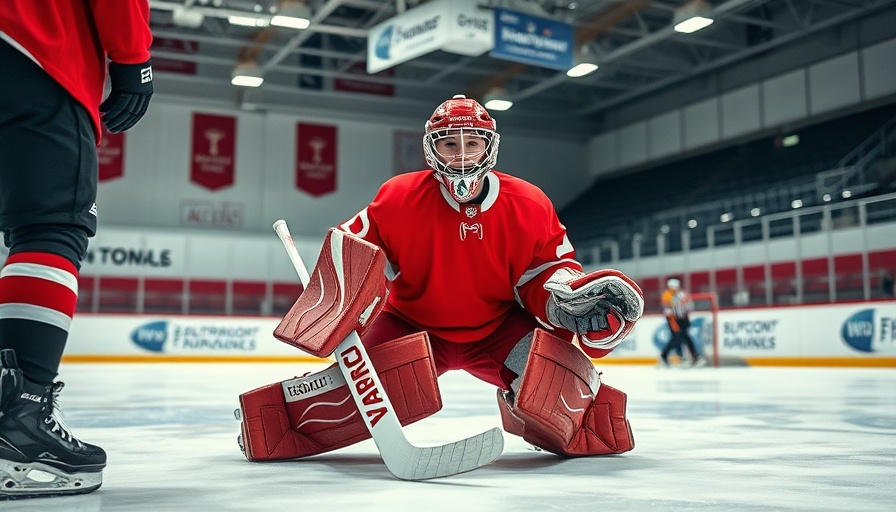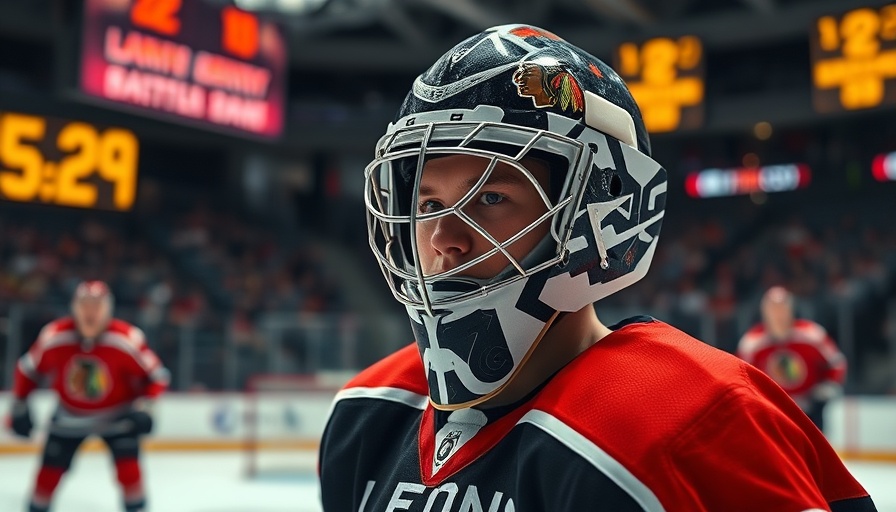
Mastering Goaltending: Essential Strategies for Success
As young goalies take to the ice, the journey towards mastering their position becomes as much about mental toughness as technical skill. While the precision of a glove save or the agility in butterfly stance are critical, it’s often the training habits off the ice that can lead to in-game success. Venturing into the world of goalie training, we uncover steps to improve performance that every young goalie and their support system can implement.
In 'How to stop the Michigan', we explored critical insights on goalie performance, leading us to discuss vital training strategies for young goaltenders.
The Importance of Off-Ice Training
Off-ice training isn't just a supplementary aspect of a goalie’s preparation — it’s essential. By spending time developing strength, flexibility, and coordination, aspiring netminders can bolster their performance in games. Simple exercises focusing on leg power, core stability, and quick lateral movement translate directly to on-ice agility, helping goalies stay composed under pressure.
Developing a Routine: Consistency is Key
Every successful athlete has a routine, and sticking to a well-planned training schedule is vital for goalies. This includes a combination of drills for reflexes, puck tracking, and situational practice mimicking game scenarios. Establishing this pattern not only sharpens skills but also builds the character and discipline necessary for a competitive environment.
The Role of Coaching and Parental Support
Goalie coaches and parents play a pivotal role in the development of a young athlete. Engaging with coaches who emphasize not only skills but also mental aspects of the game helps to create a well-rounded player. Parents can actively support by encouraging participation in training sessions and understanding the importance of mental health in sports.
Tackling Common Misconceptions
Many believe that simply practicing shot stopping will make a goalie successful. However, the true art of goaltending necessitates a broader understanding. This includes playing the angles, communicating with defenders, and adapting to in-game situations. Understanding these aspects dispels common myths about the position and encourages young goalies to think critically during their development.
How Goalies Can Feel Empowered
It’s important for young goalies to recognize their unique contribution to the team. Embracing the role of a goalie can be an empowering experience. Encouraging self-reflection on their performances, no matter if they win or lose, fosters resilience and growth, turning challenges into learning opportunities.
In today's discussion, "How to stop the Michigan", we analyzed key insights about trap and puck management for young goalies, emphasizing the importance of a solid training foundation. Embracing a comprehensive training regimen can greatly enhance talent development and lead to successful hockey careers.
Goalie parents and coaches alike should instill these training ideals in their young athletes, ensuring that they not only train hard but also think smart. With the right strategies and support, the next generation of goalies is poised to shine on the ice.
 Add
Add 

 Add Row
Add Row 


 Add Row
Add Row  Add
Add 

Write A Comment